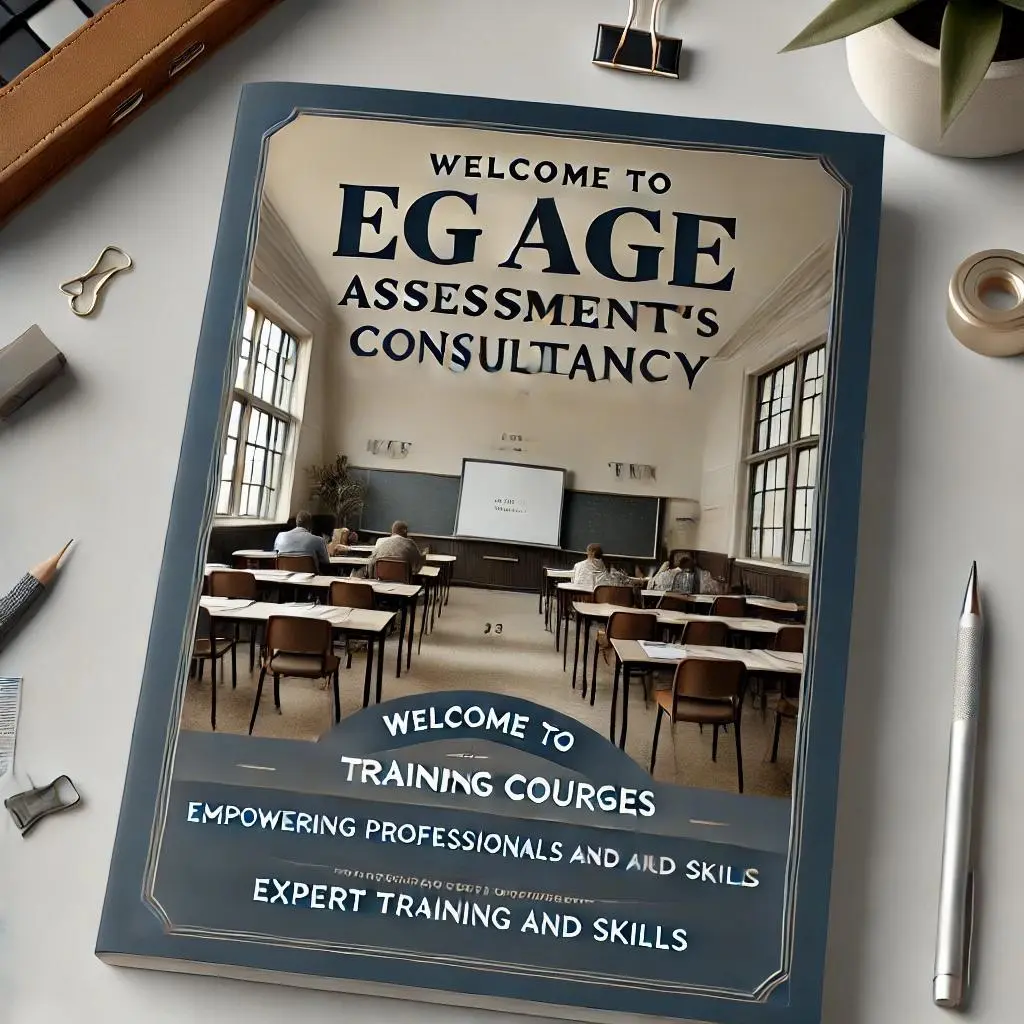Become and Expert in age assessments:
Advanced Age Assessment Training

Introduction
Age assessments are a critical tool used to determine an individual's age when official documentation is unavailable or unreliable. These assessments are crucial in various fields, including immigration, healthcare, and law enforcement. In immigration, age assessments help determine the eligibility of individuals seeking asylum or other forms of protection. In healthcare, they are vital for providing appropriate medical care and services, particularly for children and adolescents. Law enforcement agencies rely on age assessments to ensure the fair treatment of individuals, particularly when dealing with minors. Our bespoke course provides comprehensive training on age assessments, covering the latest methods, ethical considerations, and best practices. The course is tailored to meet individual needs, whether you are a social worker, immigration officer, or healthcare professional.
Course Overview
This course provides a comprehensive understanding of age assessment methods, equipping participants with the knowledge and skills to conduct accurate and ethical assessments. The course delves into the latest scientific advancements in age assessment, exploring both traditional and emerging techniques. It emphasizes the importance of ethical considerations throughout the assessment process, ensuring participants are equipped to navigate complex scenarios with sensitivity and professionalism. The curriculum is designed to cater to a diverse range of learners, offering flexibility in content and delivery to meet individual needs and professional goals.
- Interactive Workshops: Engaging and hands-on, allowing learners to practice their skills in a safe and supportive environment.
- One-on-One Coaching: Personalized sessions tailored to individual needs and learning styles.
- Group Discussions: Facilitated discussions that foster peer learning and promote critical thinking.


Legal Considerations
Conducting age assessments requires a solid understanding of legal frameworks and ethical guidelines. Key considerations include:
- Merton Guidelines Compliance: Ensuring that the report adheres to the Merton Guidelines, including the principles of best interests, evidence-based approach, professional expertise, and transparency.
- Case Law and Judicial Guidance: Reflecting relevant case law or judicial guidance on age assessments, demonstrating an understanding of the legal framework and evolving standards.
- Confidentiality and Data Protection: Maintaining confidentiality and complying with data protection regulations when handling personal information.
- Accessibility: Ensuring the accessibility of the report for individuals with disabilities, written in plain language and presented in an easily understandable format.
By following these best practices, assessors can produce comprehensive and legally compliant age assessment reports that contribute to accurate and fair decision-making processes.
Training Session Coverage
Our training sessions cover key aspects of age assessment practices, providing you with the knowledge and skills to conduct robust and legally compliant assessments. Topics include:
Age Assessment: When and Why
- Legal and ethical foundations of age assessment, emphasizing the importance of safeguarding children and ensuring their best interests.
- Relevant legislation, including the United Nations Convention on the Rights of the Child (UNCRC), the Children Act 1989, and the Immigration Act 1971.
- The significance of the Merton Guidelines.
Decisions of the Courts and Tribunals
- Examination of key case law that has shaped age assessment practices.
- Analysis of guidance issued by courts and tribunals, highlighting principles of thoroughness, objectivity, transparency, and child-centeredness.
Current Guidelines
- Comprehensive overview of the Merton Guidelines, focusing on key principles, best practices, and common pitfalls to avoid.
- Importance of adhering to these guidelines to ensure accuracy, reliability, and legal defensibility in age assessments.
How to Conduct the Assessment
- Practical techniques and tips for conducting robust age assessments, including physical appearance assessment, documentation review, and interviewing techniques.
- Methods like skeletal maturity assessment, dental development analysis, and cultural sensitivity in interviewing.
How to Avoid the Pitfalls
- Addressing common mistakes and biases that can occur in age assessment.
- Emphasis on a multi-faceted approach that considers multiple factors beyond physical appearance.
- Importance of avoiding cultural biases, relying solely on physical appearance, and considering the individual’s well-being.
Asylum: The Facts
- Specific challenges and considerations involved in age assessments within the context of asylum applications.
- Exploration of the legal framework, relevant case law, and unique needs of asylum-seeking individuals, particularly children.
Tips for Effective Analysis in Age Assessments
Conducting a thorough and accurate age assessment involves several critical steps:
Gathering and Organizing Information:
Collect information under specific categories, each focusing on a different aspect of the young person’s life, such as:
- Introduction / Preamble
- Physical Appearance / Demeanour
- Interaction of Person During Assessment
- Social History and Family Composition
- Developmental Considerations
- Education
- Independent / Self-Care Skills
- Health
- Information from Other Sources
Systematic Approach:
Approach your analysis like a detective. Summarize the information under each subheading and determine its relevance regarding age assessment. Consider different possibilities and explanations for each piece of evidence.
Balanced and Considerate Analysis:
- Show that you have considered various possibilities. Weigh each piece of evidence carefully, considering cultural backgrounds, past experiences, and the opinions of different professionals. Aim to provide a balanced view that tilts based on the weight of evidence.
Dealing with Conflicting Evidence:
Highlight any conflicting evidence and consider why discrepancies exist, such as past trauma or language barriers. Always give the young person the benefit of the doubt unless strong evidence suggests otherwise.
Professional Judgment and Conclusion:
- Use your professional training and knowledge to make a judgment based on gathered facts and considered perspectives. Be ready to explain your conclusion, especially if it differs from others.
Flexibility for New Information:
Remain open to new information that might change your analysis. A good age assessment analysis is like being both a detective and a judge, always ready to reconsider conclusions based on new evidence
Who Should Attend
Investing in MCAT training offers a multitude of benefits that extend far beyond simply meeting legal requirements. It's an investment in your professional development, equipping you with the knowledge and skills to conduct accurate, compassionate, and legally sound age assessments. Here's a glimpse of the transformative impact MCAT can have:
This Training session is designed for:
- Local Authority Social Workers
- Independent Social Workers
- Social work managers
By attending this training, participants will gain a thorough understanding of age assessment practices and be equipped to:
- Conduct accurate and ethical age assessments using a variety of methods.
- Understand the legal and ethical frameworks surrounding age assessments.
- Apply critical thinking skills to interpret assessment results and make informed judgments.
- Communicate effectively with individuals undergoing age assessment and other stakeholders.
- Stay up-to-date with the latest advancements and best practices in age assessments.
Training and Support
This comprehensive course goes beyond theoretical knowledge and provides ongoing support to ensure learners achieve expert-level proficiency in age assessment. We believe in a holistic approach that combines structured learning with practical application and personalized guidance.
Training Methods:
1. Interactive Workshops: Engaging and hands-on, allowing learners to practice their skills in a safe and supportive environment.
2. One-on-One Coaching: Personalized sessions tailored to individual needs and learning styles.
3. Group Discussions: Facilitated discussions that foster peer learning and promote critical thinking.
Support Systems:
1. Continuous Support: Our support team is available throughout the course and beyond.
2. Online Resources: Access to webinars, articles, and case studies.
3. Mentorship Programme: Connecting learners with experienced professionals in the field.
Expert Level Proficiency
Our training programme is designed to equip learners with the knowledge, skills, and support necessary to achieve expert-level proficiency in age assessment. We believe in continuous learning and professional development, and we encourage learners to stay engaged with the field through ongoing training and networking opportunities.

Becoming a Trainer
The journey to becoming an age assessment trainer is rewarding, opening doors to career advancement and the opportunity to empower others. To qualify, individuals must possess a deep understanding of age assessment principles, methods, and best practices, often involving comprehensive training and practical experience.

Benefits of Becoming a Trainer:
- Career Advancement: Increased responsibility, higher earning potential, and leadership opportunities.
- Contribution to Others’ Growth: Equipping professionals with the tools for accurate and ethical age assessments.
- Personal Growth: Enhancing communication, leadership, and pedagogical skills.
- Impact on Society: Advancing age assessment practices and ensuring fair treatment for individuals.

Success Stories and Testimonials
Our age assessment course has empowered countless individuals to become expert assessors and trainers, making a positive impact on their careers and contributing to the field’s advancement. Here are some inspiring success stories from our graduates:




Our Clients Believe In Us
Getting Started
Ready to embark on your journey to becoming an expert in age assessment? We are excited to welcome you to our comprehensive training programme. Here is how to get started:
CONTACT US
Email : info@ageassessments.co.uk or
Phone : 02045 836840
Your questions answered
FAQ: Advanced Age Assessment Training
What is the importance of age assessments?
Age assessments are crucial in various fields such as immigration, healthcare, and law enforcement. They help determine the age of individuals when official documentation is unavailable, ensuring appropriate treatment and services are provided.
How are age assessments conducted?
Age assessments can involve several methods, including physical appearance assessment, documentation review, and interviewing techniques. Scientific methods are becoming more common, typically involving two social workers.
What are the Merton Guidelines?
The Merton Guidelines are a set of principles that ensure age assessments are conducted fairly and ethically. They emphasize the best interests of the individual, evidence-based approaches, professional expertise, and transparency.
How does this training help in professional development?
This training provides comprehensive knowledge and practical skills necessary for conducting accurate and ethical age assessments. It also covers legal frameworks and best practices, enhancing professional competence and career advancement. You become an Age Assessment Trained Social Worker, adding to your skills base.
What legal considerations are involved in age assessments?
Legal considerations include compliance with the Merton Guidelines, relevant case law, and judicial guidance. It is also crucial to maintain confidentiality and adhere to data protection regulations. Failure to comply can lead to judicial review, which is a very expensive process.
Who should attend this training?
This training is ideal for local authority social workers, independent social workers, immigration officers, healthcare professionals, and law enforcement officers involved in age assessments.
What support is available after completing the course?
Participants receive ongoing support, including access to online resources, webinars, case studies, and a mentorship program that connects learners with experienced professionals in the field.
How can one become an age assessment trainer?
To become a trainer, individuals need a deep understanding of age assessment principles and methods, comprehensive training, and practical experience. Becoming a trainer offers career advancement and the opportunity to empower others.
Are there any prerequisites for this course?
Participants must be qualified and trained social workers with experience in conducting age assessments.
How do I enroll in the course?
To enroll, contact our dedicated team to discuss your needs and learn about the course structure and benefits. We offer personalized training plans depending on your knowledge

